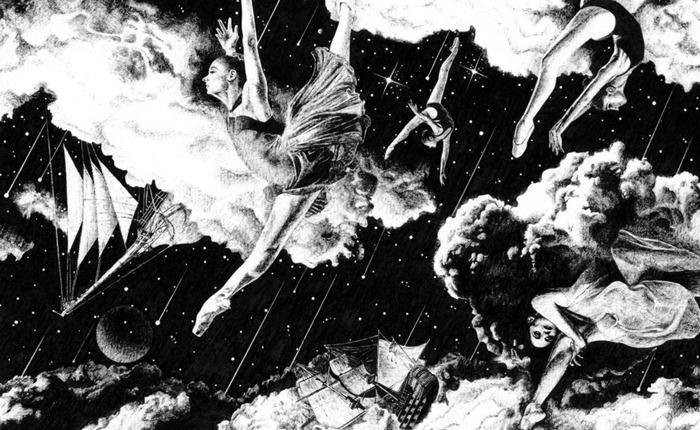Marika Hackman - The Iron Taste
BY AMELIA VINER
MONDAY, 25TH NOVEMBER 2013

Marika Hackman’s new mini album That Iron Taste combines alternative pop and singer-songwriter folk into an evocative collection of tracks. With her deadpan delivery of dark, strange, and ghostly lyrics, her soundscape calls to mind the more haunting tracks on Grizzly Bear’s Veckatimest, ‘I Live With You’. Produced by Alt-J’s Charlie Andrew, the tracks on this mini album have magnetic movement, following one another while preserving their own identities.
The first track, Bath is Black, lures us in with its angelic harp and Hackman’s ethereal vocals, sustaining our intrigue and maintaining its freshness with its unpredictable chord progression. Though the meaning of the lyrics is unclear, the way Hackman strings words together enhances the melody and compliments her minimalist voice. We fall into a trance as Hackman layers her voice into the lyrics: “you’re not coming home tonight and all this mess undress/ I’ll put you to the test/ just try your best†which seamlessly leads us into the return of the chorus with drum kicks. The end of the song brings us out of our hypnosis gently, like waking up from a pleasant but bizarre dream.
In Mountain Spines, the swerves from major to minor and back to major are poetic and just as, if not more surprising than Bath is Black. Hackman’s harmonic vocal layering is beautiful and buoyant, making for a pleasant, engaging, and somehow easy listen. Whereas Bath is Black eases us into wakefulness, Mountain Spines sends us into a dreamy oasis.
Cannibal darkens the mood and pairs distorted pitch-bends with morbid and vivid lyrics. Ethereal once again, this track feels more like a nightmare that doesn’t quite shake us into wakefulness, but rather dampens what could have been a pleasant sleep, leaving us feeling heavy in the morning. The line: “I took a knife and stabbed at the light that was in our eyes/ scared the folks in the whole of this place with a hole in my face†is particularly visceral and backs the grotesque nature of the track.
Relying less on Alt-J’s Charlie Andrew’s production, Retina Television is a sacred meditation: a portrait of serenity, a gorgeous still life. It is tastefully sparse with harmonic vocals, claps, and water drops. Her vocals become heavenly when the line “the look on your face, the look on your face†comes in, like a person in deep prayer who has confused her lover for her god. Hackman plays with the contradiction of casting this face in a halo while acknowledging her own lapsed faith with the line: “And I’ve fallen from grace, I’ve fallen from grace.â€
I’ll Borrow Time and You Come Down seem like they were composed for a neo-western film. They create images of mountain ranges, horseback riding, and shoot-offs. The first forty seconds of Plans are simple but have a heavily resonant chord progression that seeps into your skin and spreads uncontrollably.
Though That Iron Taste is a mini album consisting of only seven songs, it is as dynamic and satiating as a full-length album. In the same vocal family as Feist and Frou Frou, Marika Hackman echoes these pop-folk aesthetics with her own haunting adaptation. When we aren’t cosying up to these gentle sounds, woozy in the spaces of silence between verses, we’re tapping our toes to the subtly playful drumbeats that pepper each track. Though I didn’t get a sense of the meaning of most of her lyrics, they are beautifully strung together. I had sensorial responses to the better part of her tracks, perhaps because she mentions so many body parts: her nose, face, blood, and chin in Cannibal; her pupils in Retina Television; and her hands and skin in You Come Down.
Marika Hackman shows incredible promise as a folk musician, and already seems to have leverage over some of the other folk artists who don’t have as stylistic and rich a palette as she does. With a full-length album coming this year as part of a collaboration with Charlie Andrew, we’re looking forward to getting to know Marika better. For now, listen to That Iron Taste on repeat and allow yourself to be taken in.
By Amelia Viner